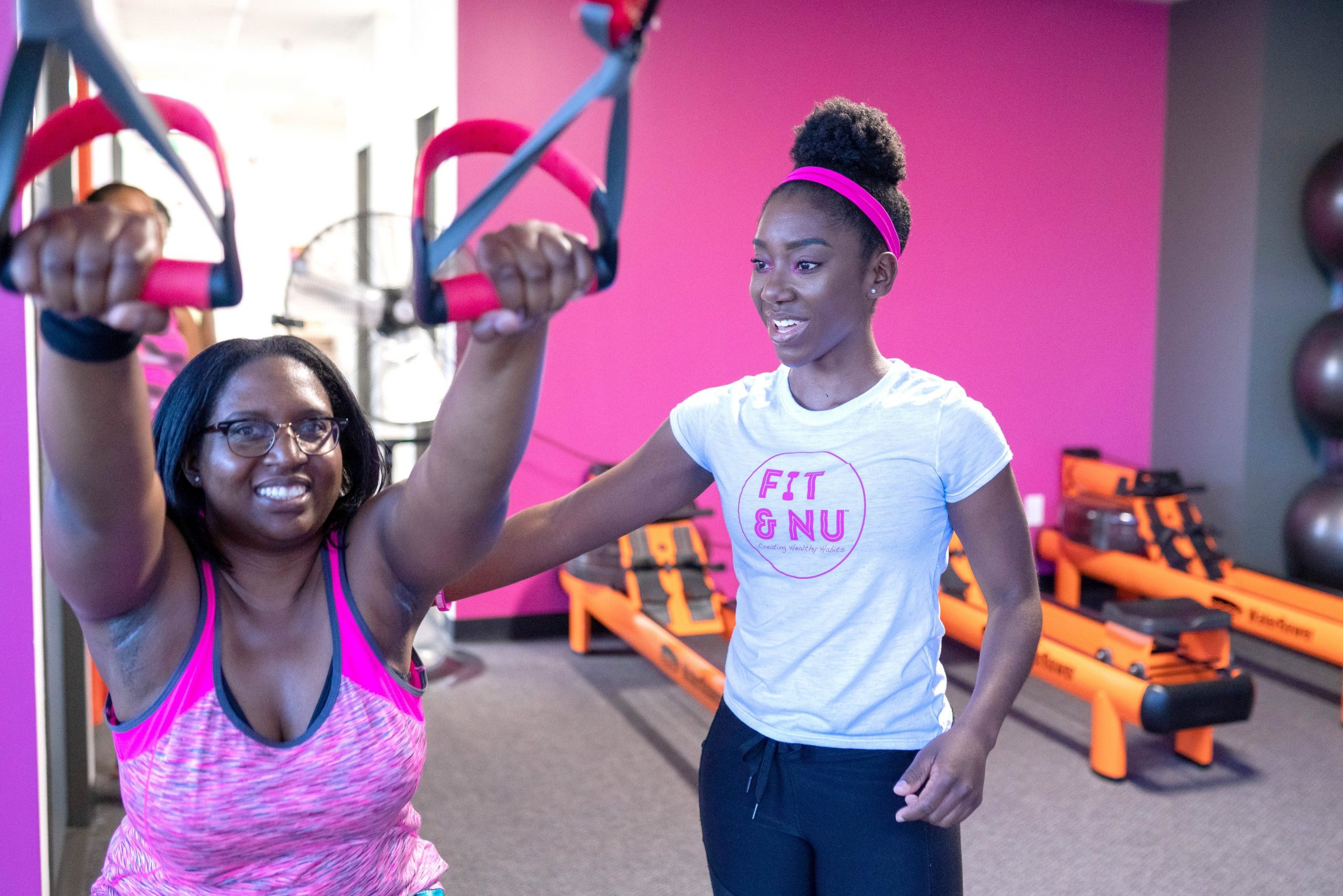
Brittney Rae and Joslyn Reese figured they were on the cusp of something big.
For five years they’d grown FIT & NU, their wellness business that primarily serves women of color. Fitness classes were full. The nutrition programs were popular. The sisters were looking ahead to a time when they could franchise their concept.
Not so fast. The pandemic hit. The gym closed. Everything went, abruptly, online.
Brittney Rae found herself streaming her workouts from a corner of her apartment. She picked a spot with good natural light, figuring it would provide a nice backdrop for her online workouts. It worked fine except for her morning classes, which started in the dark and ended at dawn’s early light.
“It’s dark and then it is light … I have to now deal with the lighting and adjusting that in the middle of class because the natural light is changing. So, it’s been fun.”
It’s also been a year of struggle with financial pressures that are real and mounting. Their landlord made concessions but their 2,500-square-foot gym has sat empty for a year. The grants and other financial aid are starting to dry up. They must soon decide whether they can wait and return to their building and their original business model, or whether they’ll have to pivot permanently to an online enterprise.
But even before the pandemic, it was never easy.
“As a Black entrepreneur you kind of come into this thinking you're not going to have, you know, a one-up on receiving funding for different opportunities, and we're kind of already told that, ‘OK, you're going to have to work harder just to be even worthy of seen as someone's competition,” she said.
The numbers bear Reese out. Between 2014 and 2019, Black women were the fastest-growing group of new business owners. In 2019, women of color accounted for about half of women-owned businesses. But it wasn’t all good news, their revenue dropped 3 percent between 2014 and 2019, according to a report from American Express.
Forbes Magazine reported recently on a study that found Black and Latina women combined received just 0.64 percent of all venture capital investment between 2018 and 2019. Of that, 0.27 percent went to Black women and 0.37 percent went to Latinas.
Those numbers aren’t a surprise to Makisha Boothe, who heads a Denver nonprofit called Sistahbiz that provides coaching and financial support to Black women entrepreneurs, including the Reese sisters.
Even before the women get to a point where they could seek venture capital, Boothe said, they lack the early sources of funds that white-owned businesses rely on — family, real estate assets and social networks that could yield start-up investors.
“Before you even get ready to entertain venture capital you’re usually going to need those levels of capital and that’s where huge gaps lie,” Boothe said.
Most Black business owners are “solopreneurs” with a handful of employees. They’re concentrated in professional services and retail, both sectors that have been hard-hit during the pandemic.
“They say when American gets a cold Black people get the flu,” Boothe said.
Black people are more likely to become seriously ill with COVID-19, and some lack access to the quality of internet service they need to run businesses and school children at home. And in the early days of the pandemic, before the racial justice movement came to life in the summer, Boothe’s clients were having a hard time getting the federal financial aid they needed.
“I was getting calls every day from women saying, ‘I’m not getting access, that I haven’t been approved. I’m not eligible for a lot of this.’”
While awareness and access to resources have improved, Boothe noted some women are becoming more optimistic about the immediate future.
“Some are relieved that we got through 2020. Some people were feeling hopeful that now the vaccine is out. Some of us agree that we’re not going back to the way things used to be,” she said.
She is worried, however, that the change won’t last forever.
“I don’t know about permanent but I do see efforts and I do see resources being moved and that’s more than what I’ve been seeing over the past decade,” Boothe said. “So I’m encouraged by that.”
Black women, though, aren’t forming new businesses just because they have good ideas, Boothe said. Statistics and focus groups show many are becoming entrepreneurs because of need, not opportunity, often because they feel pushed out of corporations and other mainstream institutions.
“You’re not sitting at a coffee shop excited about an innovative idea that you’re going to find somebody to write a check for you,” she said. “You’re looking at I need to make ends meet because I’m side-hustling right now and I’m being underpaid in my current institution or I’m being pushed out or I have to leave or I’m going to go crazy because of what I’m experiencing here."








